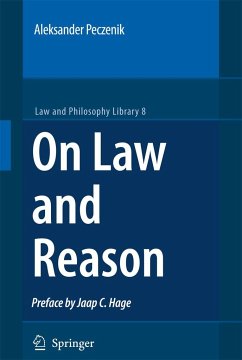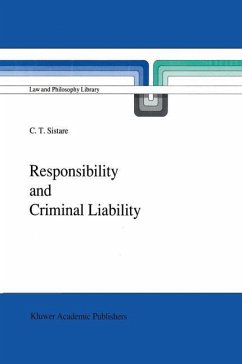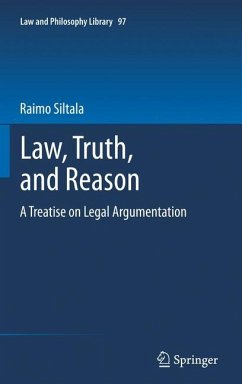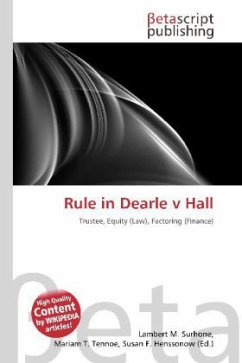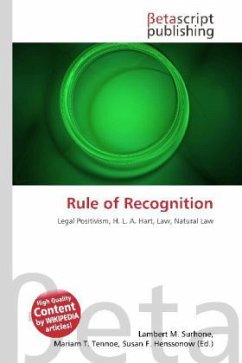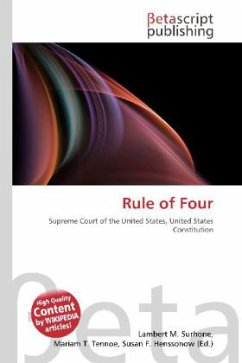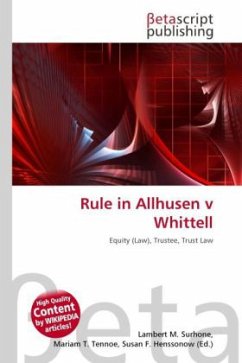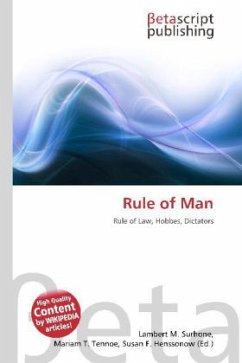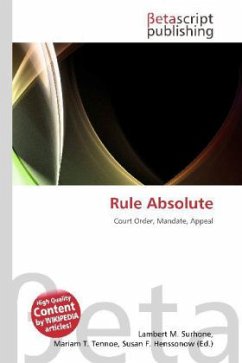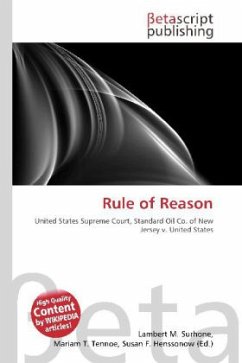
Rule of Reason
Versandkostenfrei!
Versandfertig in 6-10 Tagen
36,99 €
inkl. MwSt.

PAYBACK Punkte
18 °P sammeln!
Please note that the content of this book primarily consists of articles available from Wikipedia or other free sources online. The Rule of Reason is a doctrine developed by the United States Supreme Court in its interpretation of the Sherman Antitrust Act. The rule, stated and applied in the case of Standard Oil Co. of New Jersey v. United States, 221 U.S. 1 (1911), is that only combinations and contracts unreasonably restraining trade are subject to actions under the anti-trust laws and that size, and possession of monopoly power is not illegal. Some of Standard Oil''s critics, including the...
Please note that the content of this book primarily consists of articles available from Wikipedia or other free sources online. The Rule of Reason is a doctrine developed by the United States Supreme Court in its interpretation of the Sherman Antitrust Act. The rule, stated and applied in the case of Standard Oil Co. of New Jersey v. United States, 221 U.S. 1 (1911), is that only combinations and contracts unreasonably restraining trade are subject to actions under the anti-trust laws and that size, and possession of monopoly power is not illegal. Some of Standard Oil''s critics, including the lone dissenter Justice John Marshall Harlan, argued that Standard Oil and its Rule of Reason was a departure from previous Sherman Act case law, which purportedly had interpreted the language of the Sherman Act to hold that all contracts restraining trade were prohibited, regardless of whether the restraint actually produced no ill effects.



